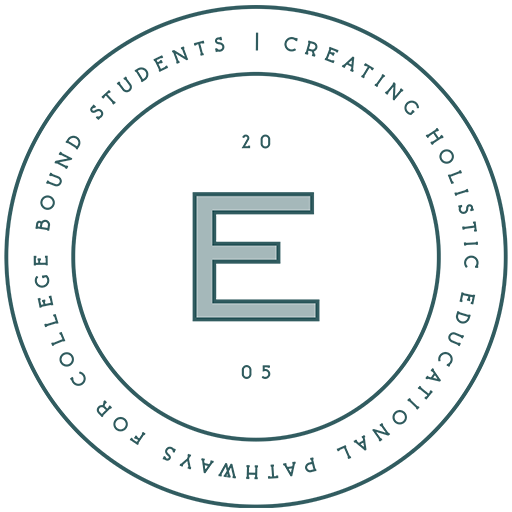Honors colleges and programs are tailored for academically exceptional students who thrive in a dynamic and intellectually stimulating environment. Before deciding to pursue an honors program, here are some key points to consider.
What to Expect in Honors Programs
In an honors track, anticipate smaller, more challenging classes, increased interaction with faculty and fellow honors students, and a variety of exclusive benefits. These perks might include special housing, early class registration, scholarships, and unique research and internship opportunities.
There are nearly 900 universities with honors programs, as reported by the National Collegiate Honors Council in 2022. Since these programs vary greatly, it’s important to research each one thoroughly. This blog will provide an overview of honors colleges and programs and offer tips for evaluating them.
Honors College vs. Honors Program
Although the terms “honors college” and “honors program” are often used interchangeably, they are distinct. An honors college is usually a separate entity within a larger university, akin to a school’s business or education college, complete with its own facilities, faculty, and dorms. In contrast, an honors program is a set of courses or seminars within a college or department. For instance, San Diego State University’s Honors Minor in Interdisciplinary Studies requires 16 units and includes study abroad and a high-impact experience like research or community service.
Life in Honors Colleges and Programs
Honors colleges and programs foster close-knit communities with significant interaction among students and faculty. Some offer living/learning communities centered around academic themes, with faculty often residing within the honors community. Despite this intimate environment, honors students also participate in regular classes and the broader college experience, typically receiving special honors recognition at graduation.
The duration of honors programs can vary, with some spanning four years and others just two. Community colleges also offer honors programs, enhancing transfer applications or providing additional opportunities. For example, honors students at Orange Coast College in California benefit from seminar-style classes, special projects, and access to resources at UC Irvine and UCLA.
Academic Focus in Honors Programs
While liberal arts often dominate honors curricula, many programs concentrate on specific disciplines and adopt non-traditional, experiential learning approaches. For example, the University of Maryland’s two-year “Advanced Cybersecurity Experience” offers hands-on learning and a cybersecurity-focused living/learning community.
Some programs allow students to design their course of study, pursue double majors, or simultaneously work towards undergraduate and graduate degrees. UT Austin’s selective Plan II honors program is a liberal arts major that occupies about one-third of a student’s coursework, leaving room to explore other majors or interests.
Public vs. Private Honors Programs
Public universities often use honors programs to attract top students who might otherwise attend selective liberal arts or Ivy League schools. These programs offer the personalized attention and academic rigor of a small college with the resources of a large research university. According to a U.S. News and World Report survey, 122 public colleges and universities offered honors programs in 2019.
Barrett Honors College at Arizona State University, renowned for its comprehensive honors offerings, is an example of an honors college within a large public university. Barrett students benefit from a $12 million endowment supporting their projects.
Smaller private schools also offer honors tracks, often within specific majors. Swarthmore College’s honors program allows students to design their academic paths and culminates in oral exams by external examiners from prestigious institutions.
Admission to Honors Programs
Admission requirements for honors programs vary, but generally, you need stronger grades and test scores than those required for regular programs. Some programs require separate applications or invitations based on academic records. Maintaining a minimum GPA is usually necessary to remain in the program.
You might be invited to join an honors program upon admission or need to apply separately. Deadlines for honors applications may differ from regular application deadlines, and some universities, like the University of Illinois Chicago, include additional essay questions for honors applicants within the Common App.
Pros and Cons of Honors Programs
Advantages:
- Community of intellectually driven peers
- Individualized academic and career counseling
- Access to alumni networks and mentors
- Scholarships and funding for special projects
- “Honors” distinction at graduation
Drawbacks:
- Heavier workload and more demanding classes
- Potentially longer time to graduate if additional units are required
- Challenging thesis or capstone projects
- Possible transcript notation if you leave the program
- Impact on GPA, which could affect future academic plans
Questions to Consider
If you’re considering an honors program, ask the following:
- How challenging are the courses compared to regular classes?
- How does the program influence students’ social lives and campus involvement?
- Are there requirements for honors-level classes?
- Does the program follow a specific theme or focus?
- What are the performance requirements to stay in the program?
- Are there thesis or capstone project requirements?
- Are there additional fees?
- What are the program completion rates?
- What happens if you decide to leave the program?
While honors colleges and programs offer many benefits, some advantages can be found outside of an honors curriculum. However, if you are a dedicated student with a passion for learning, an honors program can significantly enhance your college experience.
Laura Barr is a deeply experienced and passionate college consultant, founder of Emerging Educational Consulting, and creator of the Capstone Certification program. She is dedicated to helping families and professionals navigate the college application process with simplicity, deliberation, and joy. Want to learn more about our services? Tell us your story!




